Having left his mark on the public and professionals with many outstanding works such as: “Two Children”, “Promised Land”, “Unsteady”, “Border”… Ta Quynh Tu has chosen his own path. His films have no commentary, focusing on exploiting the fates and lives of the unfortunate and difficult.
Having the opportunity to meet director, Meritorious Artist Ta Quynh Tu on the days approaching the 100th anniversary of Vietnam Revolutionary Press Day, we learned more about his life story, career story and precious filmmaking memories.
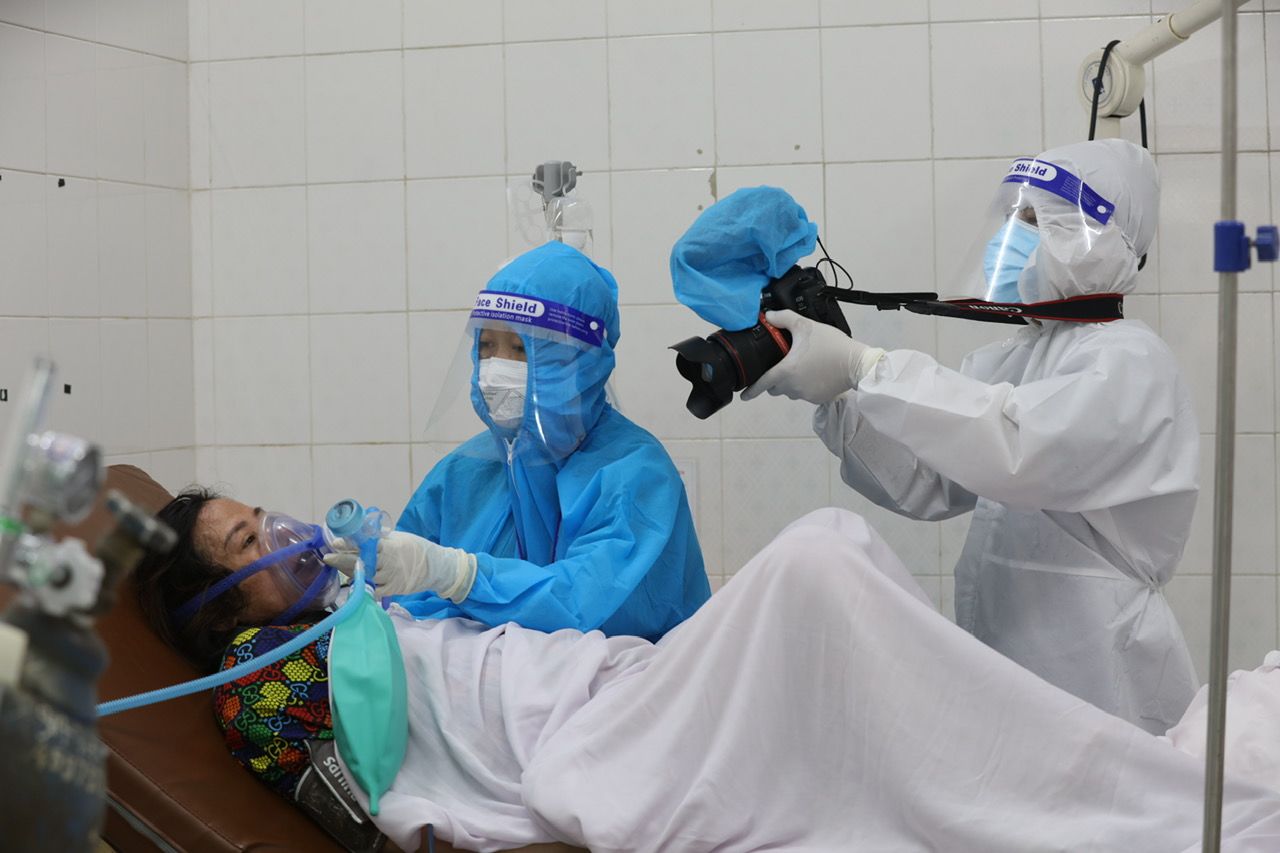
Ta Quynh Tu (white shirt, right) works in the Covid-19 epidemic center in Ho Chi Minh City.
The topic sometimes comes in... dreams
PV: When mentioning the name Ta Quynh Tu, many people will immediately think of the role of director, screenwriter, and cameraman. How did you get involved with television and documentaries?
Director Ta Quynh Tu: I started out as a cameraman. But to really understand why I chose this career, I have to recall the story of a lazy boy who had no direction. My parents, at that time, were already old and had to work hard as factory workers. My parents only told me that I had to study hard to escape poverty. All my studies, career choices, and future orientation were all up to me to decide.
Even though I was reminded of that, I was still… too lazy to study! While my friends were enthusiastically registering for the university entrance exam, I didn’t know what to take so I… went home and helped my family with the farming. I hadn’t finished hoeing the field yet when the sun rose high in the sky, the sun was getting hotter and hotter. Sitting in the middle of the vast field, I felt how vast it was! If I didn’t find a job, I would surely suffer a lot in the future! From then on, I was determined to go to school.
Once, passing Nghia Tan Park, I stopped for a while and saw a director giving instructions but the cameraman did not listen because the camera angle was not suitable. I started to think about learning to film with the hope of being able to control the camera angles well and quickly grasp the problem.

Director Ta Quynh Tu (left).
I went to school 4 years later than my peers. My family was poor. After graduating from the Hanoi Academy of Theatre and Cinema, I owed a large sum of money, nearly 100 million VND.
In 2005, after graduating with a degree in cinematography, it usually took 5-10 years of working as an assistant cameraman before becoming a main cameraman. At that time, there weren’t many options. One time, a friend of mine was busy so he asked me to help him film for the program “For the Poor” of Vietnam Television. Seeing that I could film, a sister in the crew invited me to work with her. So I have been with the station until now.
PV: How long after joining the station did you have your first documentary?
Director Ta Quynh Tu: During the first 5 years of working at the station, I always cherished the idea of becoming a director for documentaries or feature films. Knowing that the station had a very abundant source of documentaries, while the departments had very few producers, in July 2011, I applied to work at VTV4 as a director.
When I first arrived, I was very worried. My mind was always on the edge: how to make my first film impressive? After thinking for a long time, I chose to make a film about the caretakers at Truong Son cemetery ( Quang Tri ), about the stories of people living among the dead.
Having chosen the topic, I wondered: I needed to find something new in that topic. A friend who taught at the journalism school suggested that the image of the Bodhi tree there had never been exploited, so I immediately took the phrase "Bodhi vitality" to talk about the dedication and vows of those who work as caretakers here.
When I made “Bodhi Vitality”, I spent my own money to invest in a camera. If I remember correctly, it was a Canon 7D. At that time, almost no one around me was filming with a camera.
The camera's strength is to bring sparkle to every scene. Compared to a video camera, the camera does a better job of blurring the background or detailing. Besides, it is also very mobile, compact and convenient. Although at that time, the camera had limitations in recording time and sound, I still tried my hand with the desire to bring a new dish in aesthetic vision to the audience.
So in the first test, in “Bodhi Vitality”, about ¼ of the film’s footage was shot by camera. However, in “Breakwater”, 100% of the footage was shot by camera.
Director Ta Quynh Tu
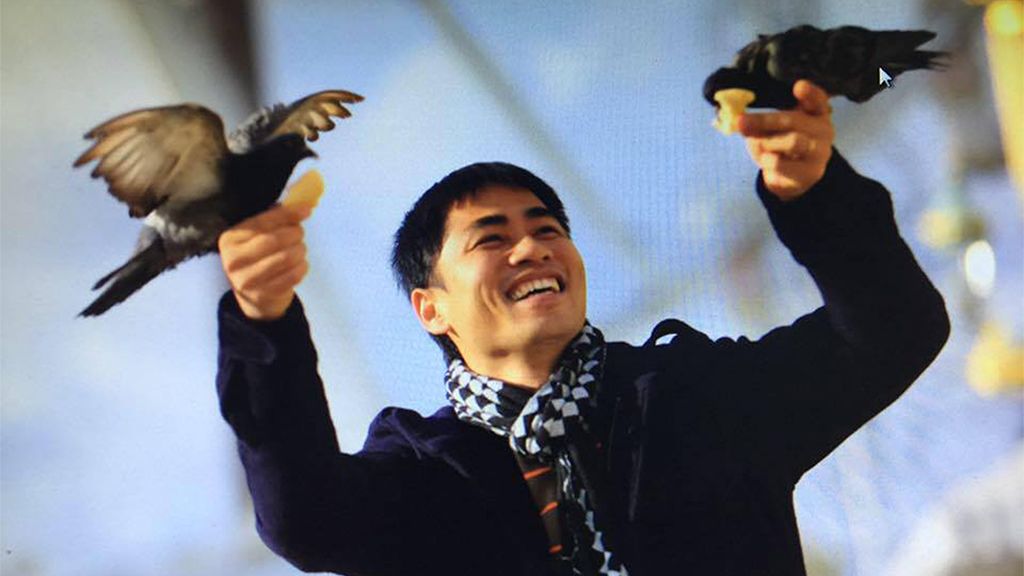
Director Ta Quynh Tu.
Later, whenever a new camera model with updated features came out, I would sell the old one to buy a new one. My family always supported and believed in all my decisions in my work, even when I had to use my own money to make films like “Two Children”.
PV: Is it difficult for you to find topics for documentaries?
Director Ta Quynh Tu: Topics come to me by chance. Sometimes, they even come to me in my dreams!
The story goes like this. After finishing the film Two Children, I often had dreams about two mothers mistaking their children for martyrs. I always thought it was just a dream. But then, in the end… it happened for real.
That was when a colleague at Quang Tri Radio and Television Station sent me a list of 1,000 martyrs with complete information but no family to claim them. My wife and I immediately chose a case in Vinh Phuc to research and decided to... make a film.
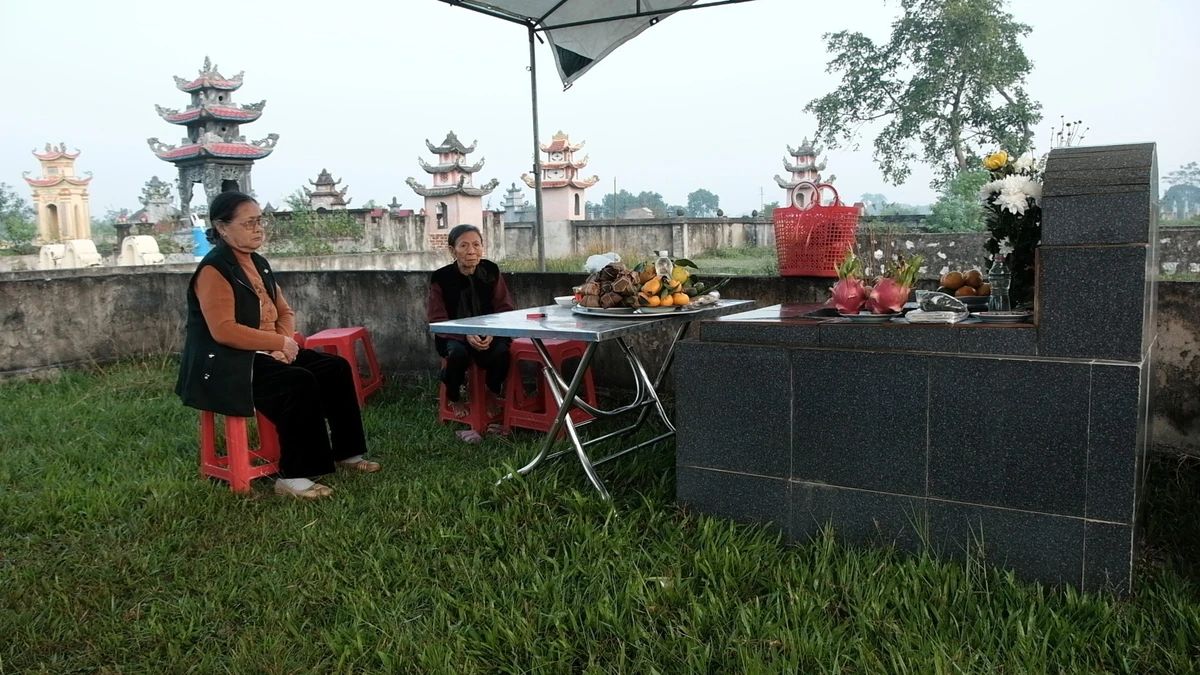
Two mothers sat by the grave, not knowing if the person lying there was their child or not - Photo: NVCC
We followed the family to the Department of Meritorious People to complete the procedures, then two strangers appeared. I vaguely heard them say that their whole family had been worshipping their loved one for 10 years, but suddenly… the grave was lost. And that grave was mistakenly claimed by another family…. My nightly dream, in a way, became a reality.
And so, I decided to abandon the old topic and switch to making a film about the tragedy of mistaking a relative's grave with "The Way Home".
The Way Home tells a true story. In 2002, Ms. Luu Thi Hinh's family found the grave of martyr Dinh Duy Tan located in the Ba Dac Slope Martyrs Cemetery, Tinh Bien District, An Giang Province. Because they wanted their son to be near his comrades, Ms. Hinh's family did not move the martyr's remains back to their hometown. In June 2018, Ms. Hinh's family visited their son's grave and learned that Ms. Ha Thi Xuan's family had moved the martyr's remains back to Ninh Binh Province 8 years ago. After many arguments, both mothers finally acknowledged their son...
Documentaries have their own "hidden" language, no commentary needed
PV: It seems that when starting to do a project, it is inevitable that what happens in reality is much different from what was previously planned?
Director Ta Quynh Tu: That is a common thing for many journalists when they go to the field. The films I make do not have a script. When I start working on a topic, I often give it many directions in my head.
There are situations that often happen: If it falls into one of the predetermined directions, I will continue the existing thread. But there are also times when the collision from reality does not fall into any of the hypotheses. The scene will also give us completely new topics.
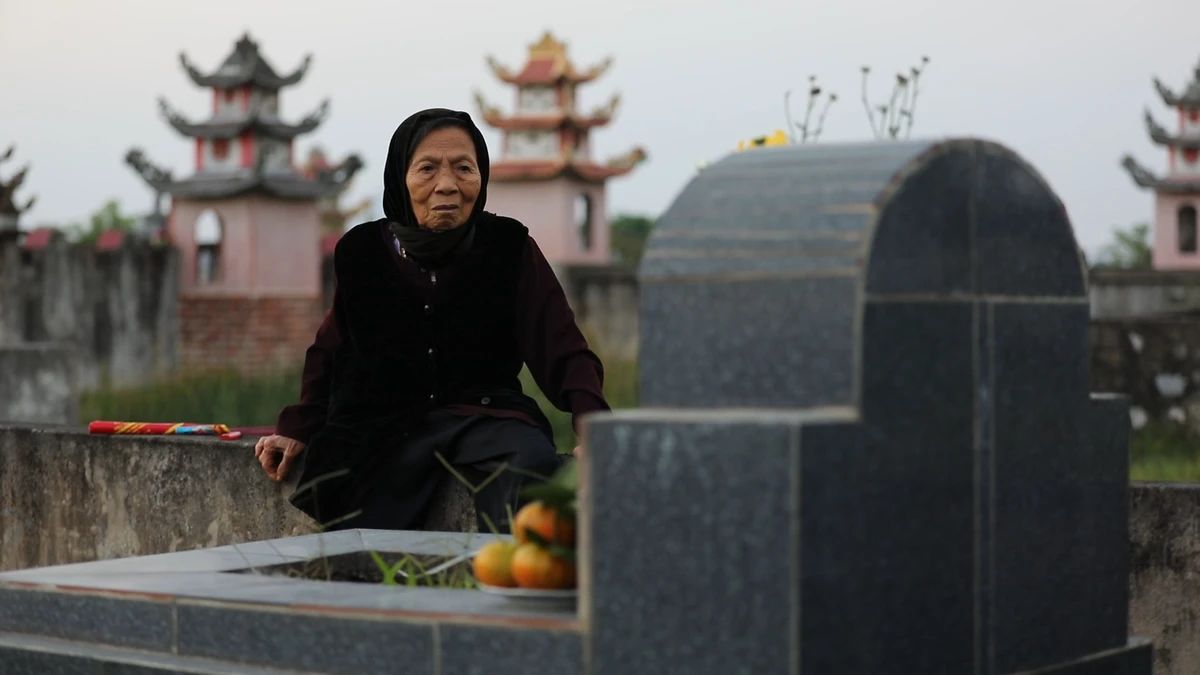
"The Way Home" was formed randomly, without any pre-existing intention. Ta Quynh Tu called it the improvisation of journalism...
I concluded that if you stick to a pre-existing script, you will be constrained. The topic will be limited. Your thinking will lack openness. Documentaries must follow the characters and reality. Therefore, you must rely on the characters and the situations they actually experience and face to form the script.
In post-production, the final detailed script is completed. This is the time to work on the storytelling, the way the ideas are conveyed, and to determine the plot and the overall plot of the film.
PV: Your films are very real and simple. Do they reflect an aspect or personality of Ta Quynh Tu?
Director Ta Quynh Tu: I had many jobs before becoming a filmmaker or a journalist. There was a Ta Quynh Tu who worked as a construction worker, a farmer, or a woodblock printing artist, wandering from place to place to meet people in need.
I came from a working class background so I can understand all the work and hardships of the characters. It seems like there is no distance between me and them. When setting the camera angle or asking questions, I always look from the perspective of a worker. In my opinion, we should tell the most real-life stories, from the smallest things.
When I returned to Taiwan and worked as a cameraman for the program “For the Poor”, I continued to travel. Each trip, to me, is a page in the book of life. I travel a lot to feel the breath of life.
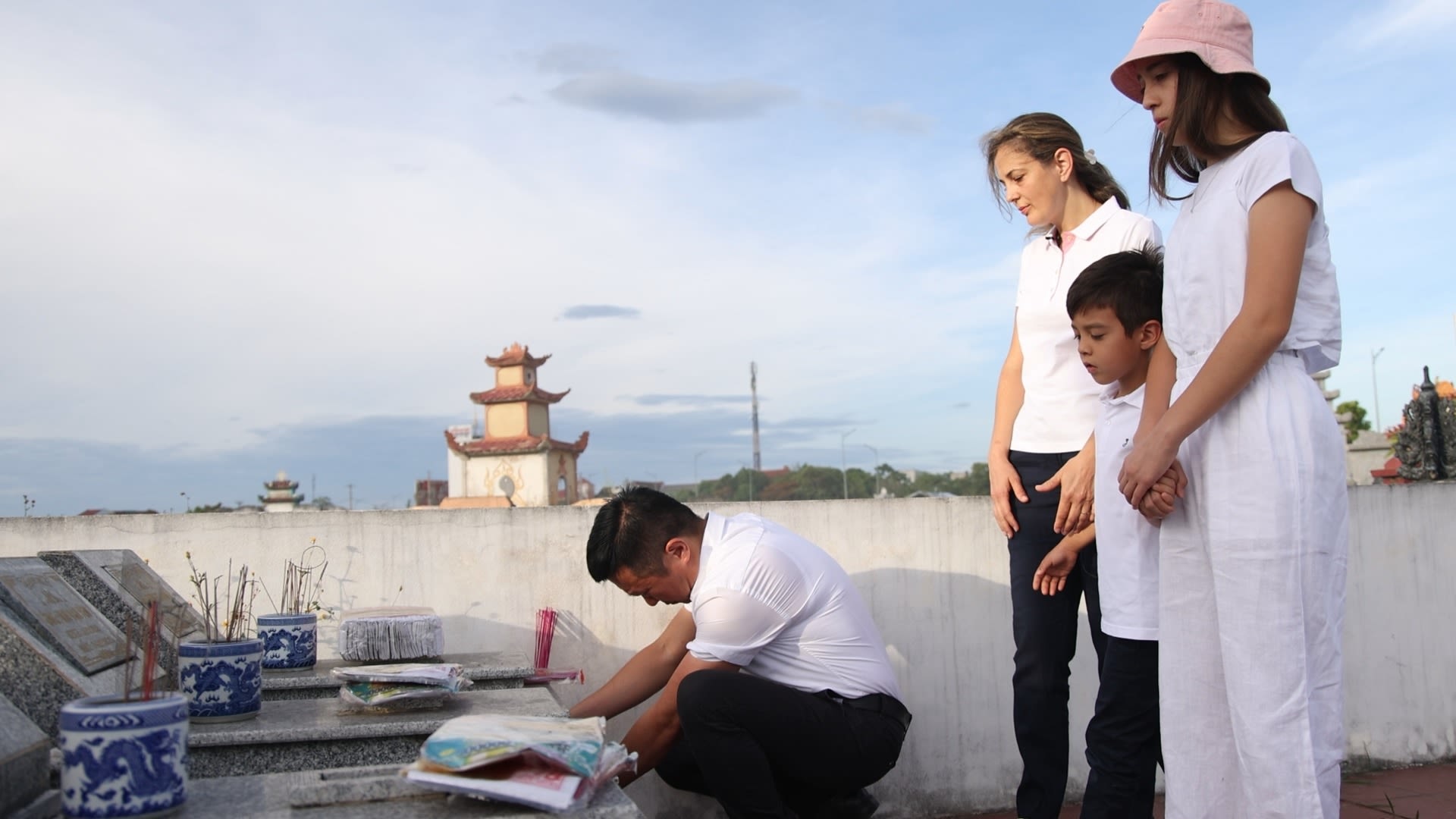
The VTV special program "Mother waiting for her child to come home" by director Ta Quynh Tu was shown on VTV1.
It was sincerity that helped me quickly connect with the character. For example, when I found an overseas Vietnamese who was "near death" and returned to his homeland, I listened to their story. Once I understood their feelings, I thought about how to convey them in a more intimate way. Then I chose a "dyke" representing the love between the army and the people, the love between neighbors and friends. It was that dyke that brought an expatriate over 80 years old back to his birthplace. The film "Breakwater" was born from that.
But there are times when I am forced to act in order to find the truth. When making “Chong lac”, a film about the lives of Vietnamese brides in Taiwan, I became “Uncle Cuoi”, playing the role of a person who goes to do paperwork to find a fake nationality network. But if someone asks me if I am embarrassed about that, the answer is no. Because clearly, I am exposing an unpleasant truth to help other situations.
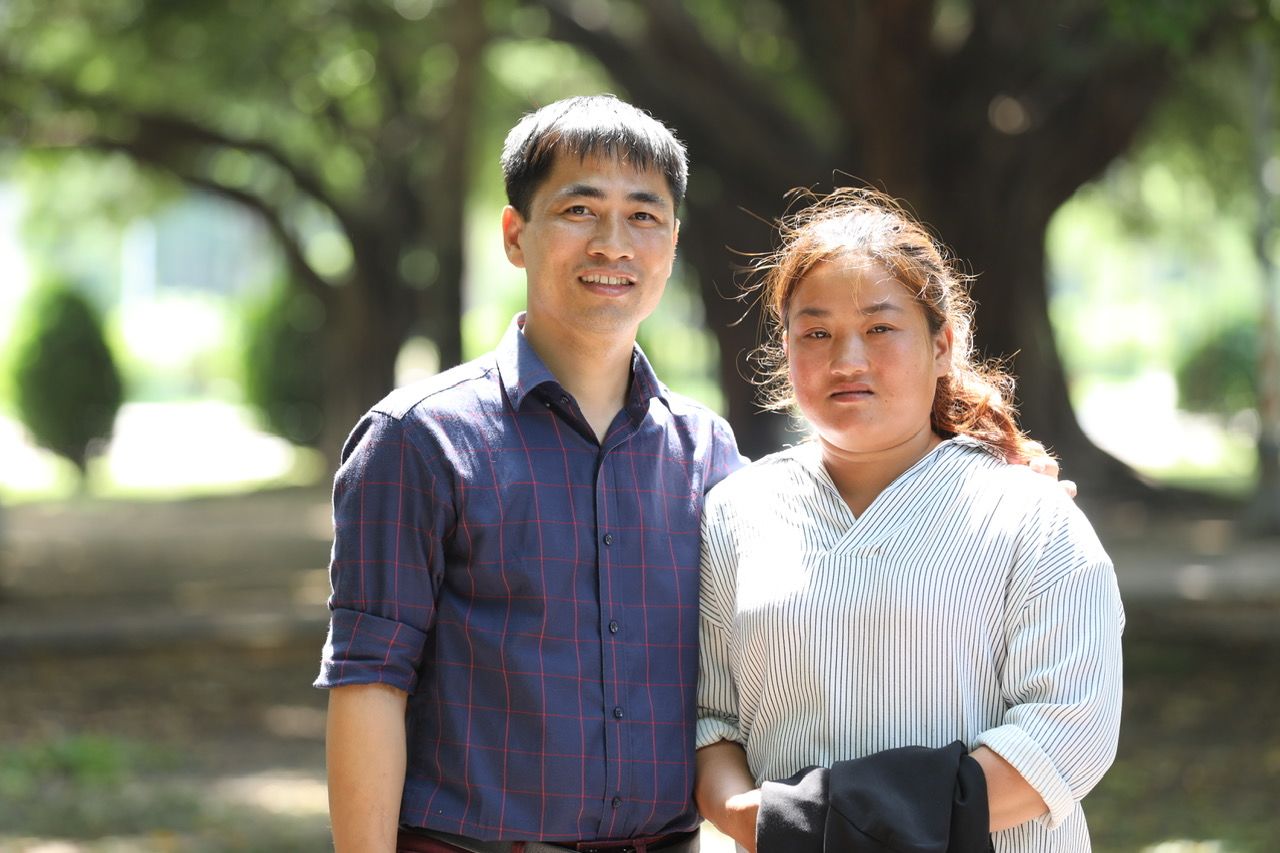
Director Ta Quynh Tu (left) and a character in the documentary "Unstable". (Photo: Film crew)
PV: When did you turn to making documentaries without commentary?
Director Ta Quynh Tu: This story originated from a very awkward situation. After filming and writing the script, I asked someone to write a commentary for “Breakwater”. But as the broadcast date approached, there was still no commentary… So I stayed up for 3 days and 3 nights writing a commentary for the film. But after writing it, I realized that it didn’t leave much of an impression. Perhaps, writing commentary is not my forte.
At that time, in the world, making films without commentary was not entirely new. But in Vietnam, this approach was not popular. If the commentary was written in a general style, just describing and recounting, it would not be expensive. Because the images already expressed that. To make a good commentary, one must learn from “Hanoi in Whose Eyes” and “A Kind Story” by People’s Artist Tran Van Thuy.
Thinking back, I see that when people are born, when they have not yet communicated with each other by language, they often express and understand each other through gestures and actions. Documentary is a cultural work, with themes, ideas and always conveys a message. Therefore, instead of using words to say it, we can filter and insert the meaning through the character's story.
Their interactions with life, between people, from expressions, actions to words will all exude the message that the film wants to convey. Those interactions are rich material to exploit in the film. And “The Tree of Life” is my first documentary without commentary.
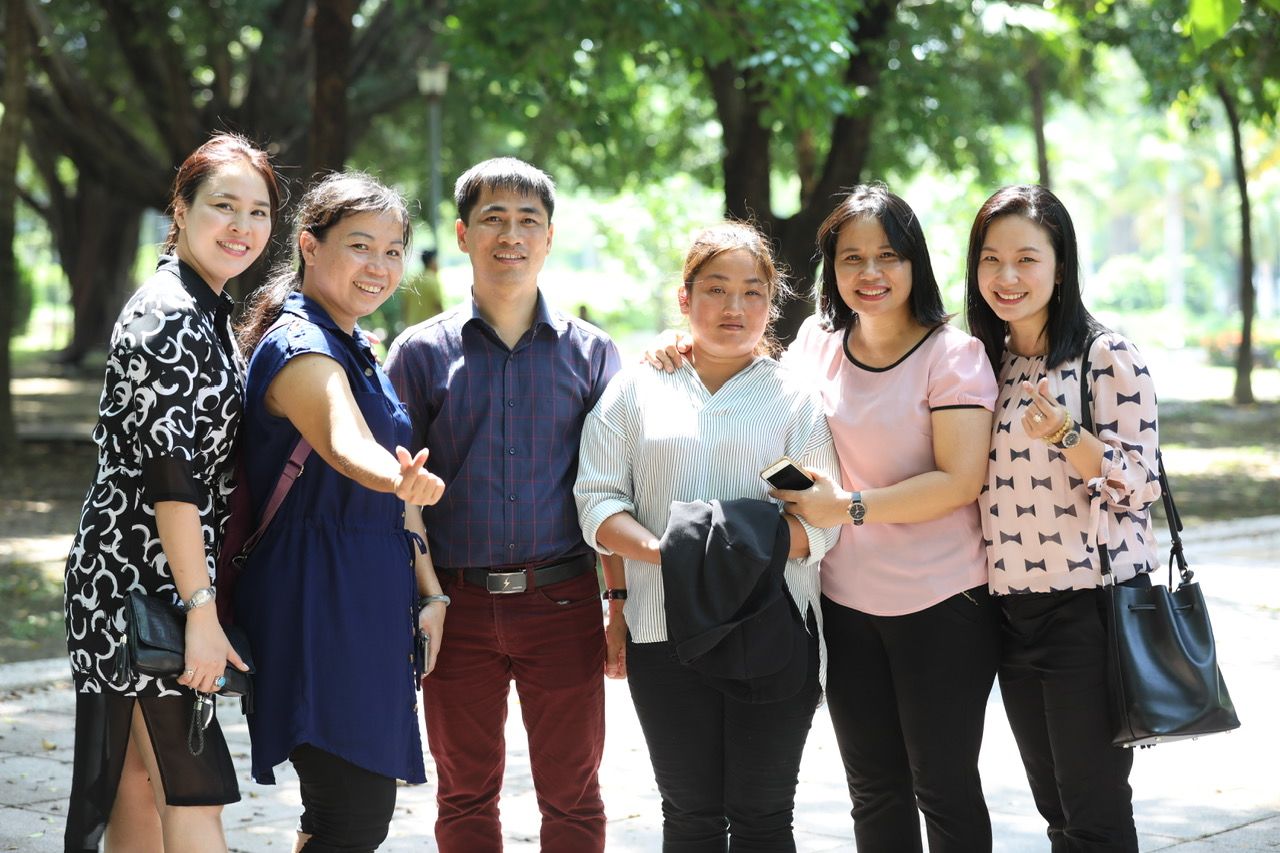
Director Ta Quynh Tu and crew with characters in the documentary Chong lac.
PV: If I'm not mistaken, it was "Breakwater" and "The Tree of Life" that brought you two Silver Awards at the 2011 National Television Festival?
Director Ta Quynh Tu: That's right. Those were the first awards of my life. And until now, it seems that no one in the TV station has won two Silver Awards at the same time in the documentary category in a National Television Festival season. To me, that award is very precious. Even though I have achieved many other successes now, the emotions of the moment I received those two Silver Awards are still intact in my mind.
Of course, awards are not the main measure of the quality of a product. But they have the value of encouraging and motivating journalists. More than anything, each film gives me a lesson, an accumulation .
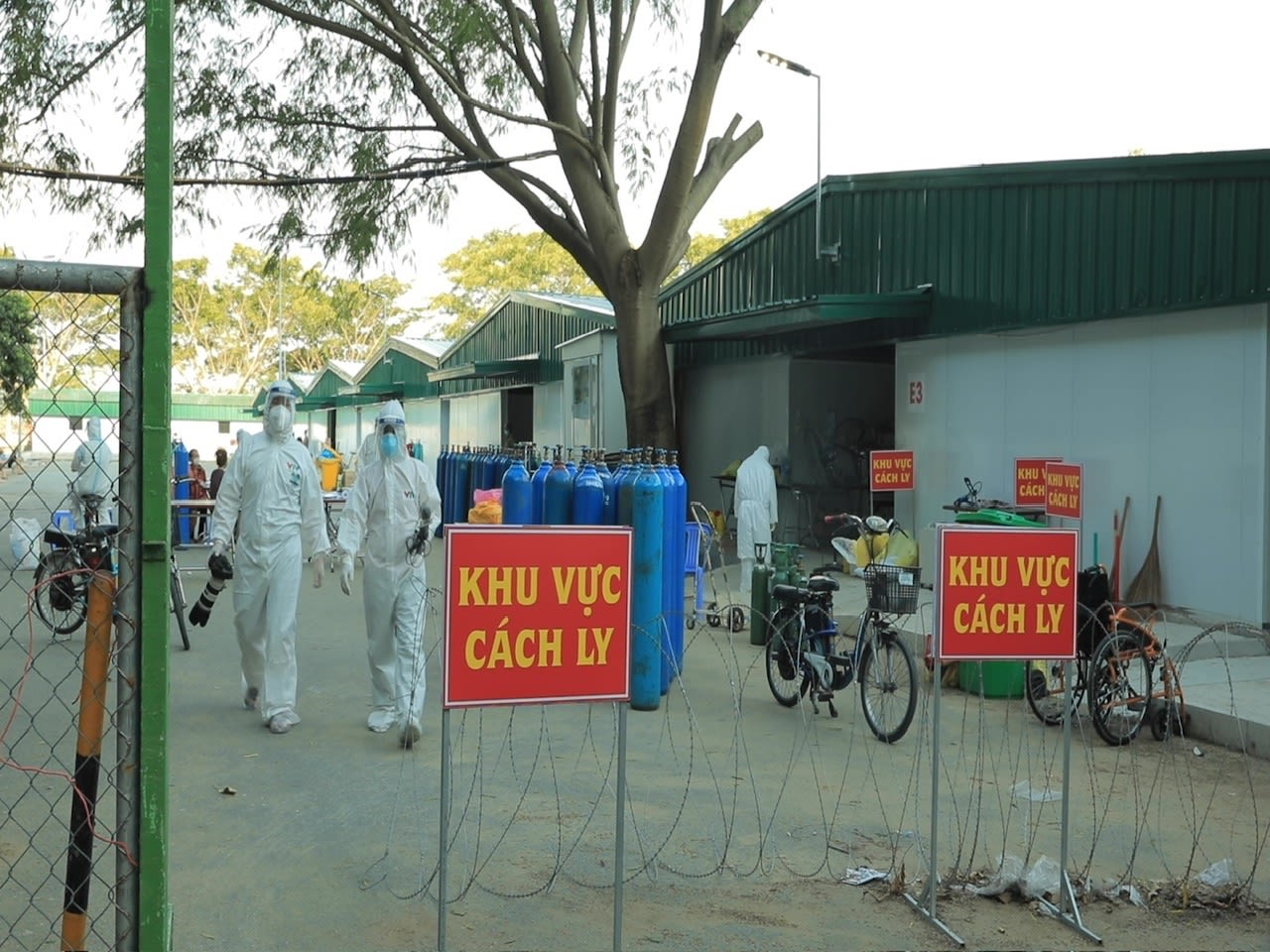
Perspective: the decisive factor for the success or failure of a journalistic product
PV: In your opinion, what is the most important thing when approaching a problem?
Director Ta Quynh Tu: Perspective is the most important thing. At first, I didn't see that, but now I can confirm that perspective is extremely important for journalists. Because it is the key to approaching and reflecting on the problem.
The ultimate goal of a work is to bring value to the viewer. However, the success or failure, good or bad of a work depends a lot on the perspective. That is why when making each work, I always try to approach it with a new perspective.
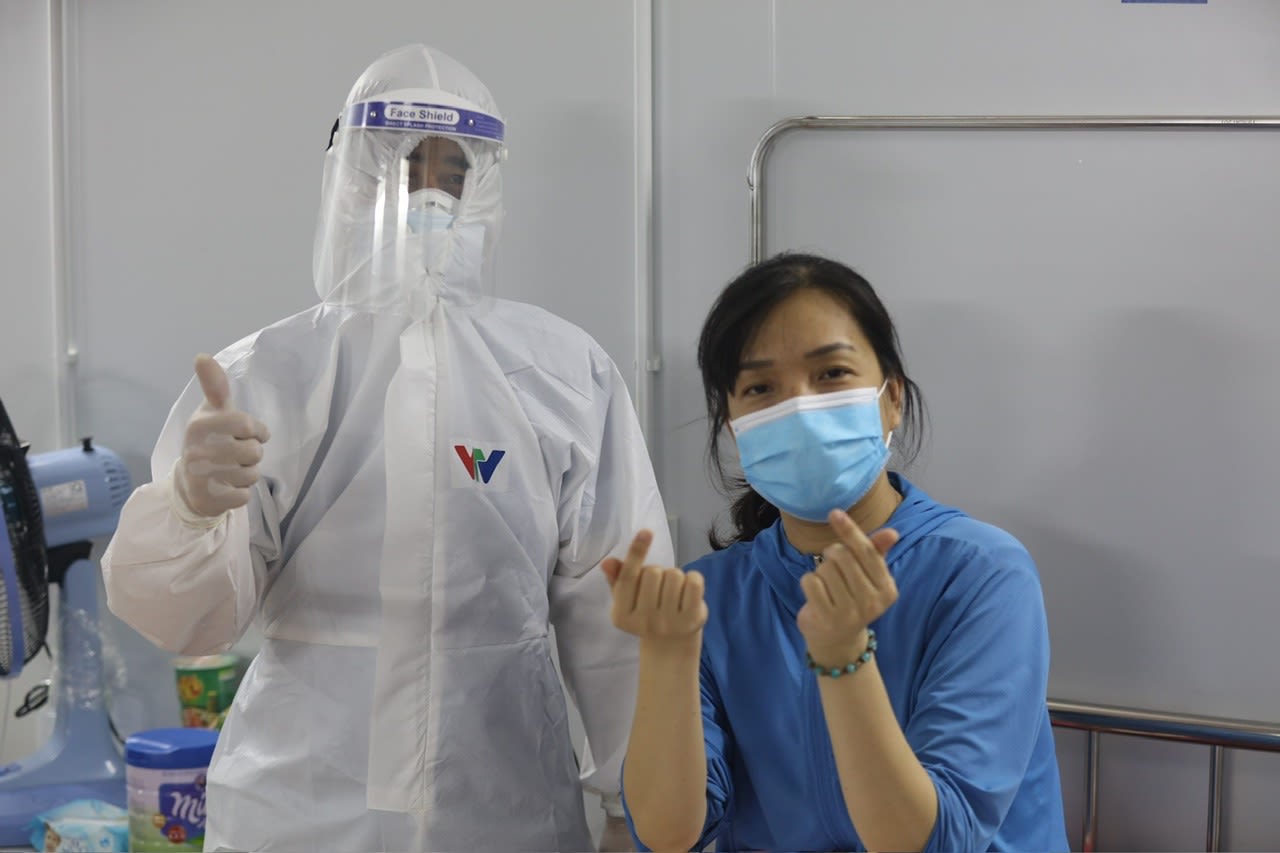
Director Ta Quynh Tu (left) takes a photo with a character in "Borderline".
There are films that I pursued for years but still failed. But there are films that I only made within a week and were successful. From this, I concluded that the success or failure of a film is not measured by time but it is measured by the depth of the story with the characters, my feelings for the characters as well as the sharing of the characters with the author.
To have a good perspective , I think, you need to observe carefully and analyze deeply enough. The nature of this is going around in a circle. If you want to have a product, you have to go, and if you want to go, you have to have real experience. If you want to have real experience, you have to struggle , and only by struggling can you empathize with the character. If you just observe simply like "riding a horse to see flowers" , it will be difficult to do journalism.
PV: Many of the films you produce are cinematic: they have climaxes, drama, twists and turns… The characters are also stylized. Does exploiting these elements contradict the inherent honesty of journalism?
Director Ta Quynh Tu: Documentaries must deal with real people and real events. Absolutely no fiction. Even if there are some scenes that have to recreate situations or scenes in the film, it is based on the database and facts I have about the characters. Or sometimes from the characters' words, I just visualize them with specific images and actions so that the audience can understand the story better.
This is also based on my filmmaking principles, instead of using commentary to describe the story, use images to tell the story. From investigative films to works about fate, pain, and hardship, they all try to leave a deep impression on the audience. And those should be positive messages.

Director Ta Quynh Tu.
PV: Do you mean that even when the film deals with pain, the director should still send positive messages?
Director Ta Quynh Tu: Obviously. For example, the story of the mistaken child in “Two Children”. If at the end of the film, we nail the pain by attributing the mistaken child exchange to the negligence of the doctors, then that pain will still linger on for the two poor children. The film will also only stop at condemning and reflecting the deadlock.
But if we add more parts, focusing on how the children integrate into life after returning to the right place, as well as finding someone to solve that dilemma, the value of the film will also be different. In "Two Children", it is Mr. Khien who stands up to encourage the two families to become one and take care of both children.
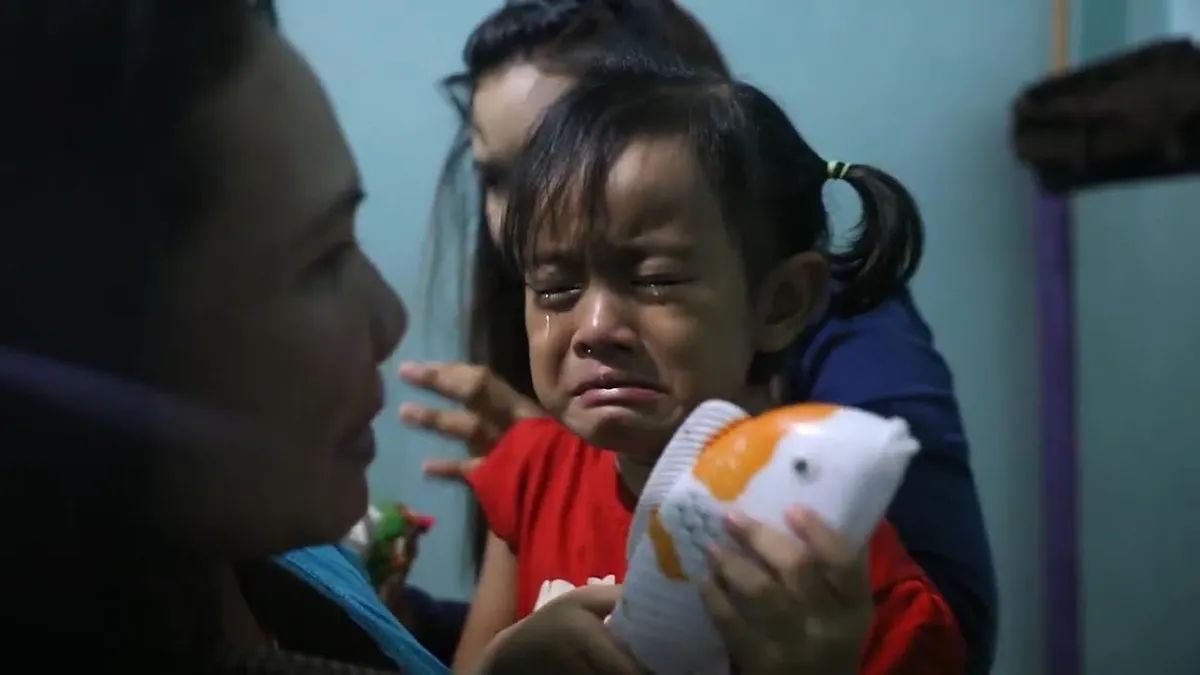
Little Thin, an ethnic minority girl, was mistakenly given to Mr. Khien's family. This is the image of the girl being returned to her biological mother, Ms. Lien, in Soc village.
Or in the movie “Borderline”, if the movie starts with death and ends with death, we are talking about a terrible epidemic season and in the end people fall into a deadlock. But if it starts with death and ends with a cry at birth, the story is completely different. “Borderline” sends a message: no matter how terrifying the epidemic is, life still arises thanks to the solidarity of people and the enthusiasm of the medical team.
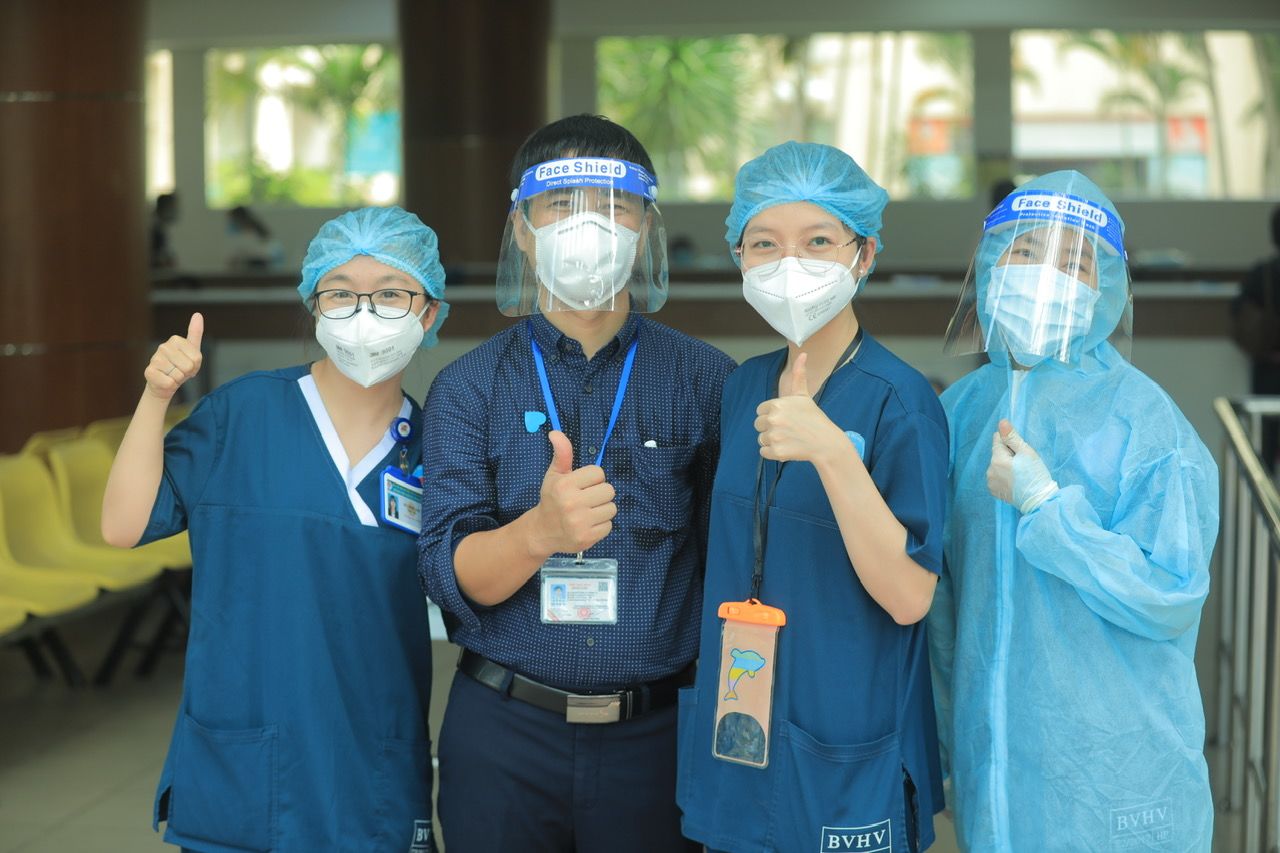
Director Ta Quynh Tu when making the documentary Border.
Ultimately, where a film wants to stop and what message it wants to convey is still up to the production team. Post-production is the process where the director rearranges it again so that the film appears with a more complete appearance .
Director Ta Quynh Tu
Opportunities only come when you dare to take the plunge.
PV: While holding the camera, did you think about the ending of the film?
Director Ta Quynh Tu: With all documentaries, while filming, I think about what to start and end with, what images. There are also cases where I am "stuck", then when I review the tape in post-production, I will choose from what has been filmed. I rarely encounter this situation.
Telling a story in a documentary is like building a Lego block without a model or template. It's all just the pieces and it's up to us to create.
Director Ta Quynh Tu
I still consider myself lucky. Making a film is 30-40% luck. Lucky to meet a good character. Lucky to exploit an interesting story. But that luck also comes from the director's careful preparation beforehand. In case, a valuable situation is missed, the director needs to quickly imagine what other images can express that content. Then, continue to judge, find out if a similar scene will happen again?
It is through preparation and willingness to commit that you can have a profound approach to the problem. Then, from facts and data, make appropriate judgments in each situation.
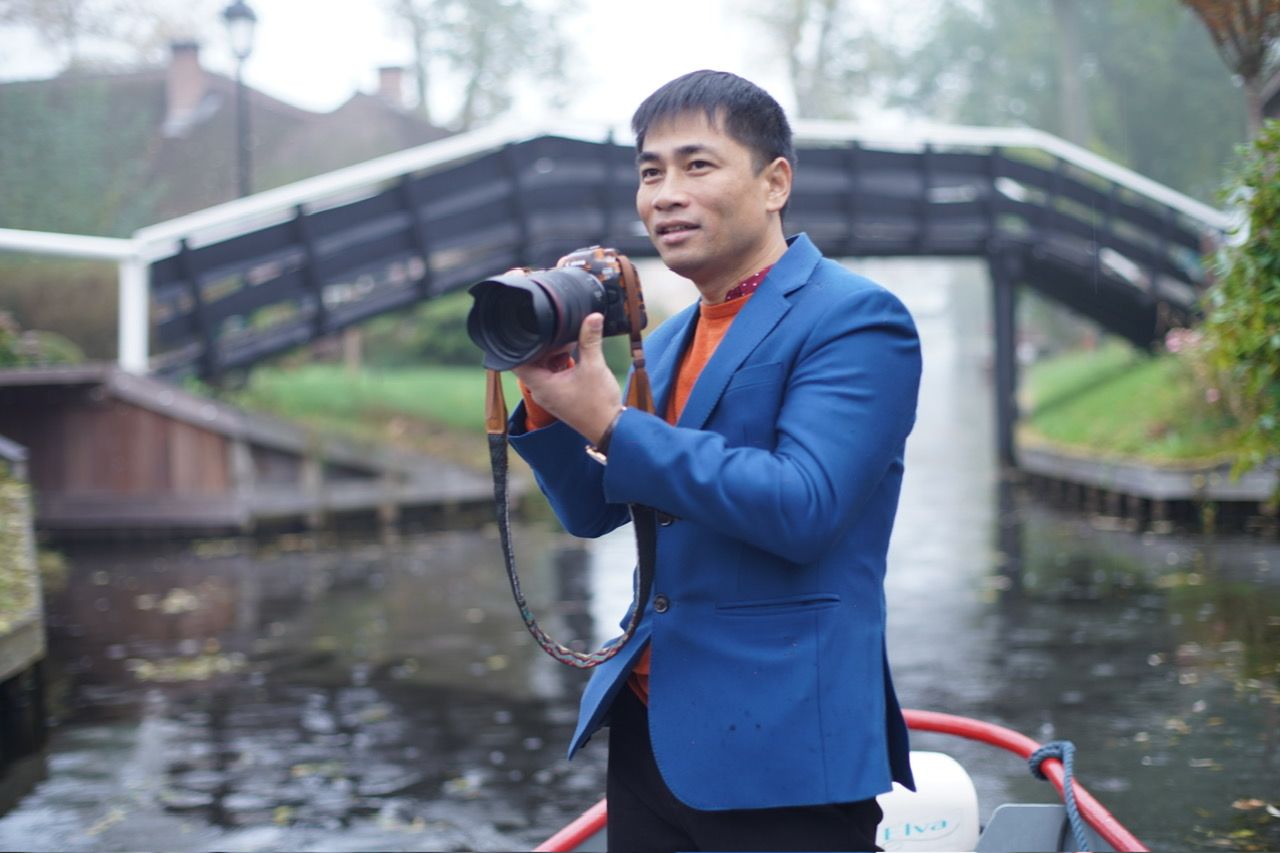
Director Ta Quynh Tu considers himself a lucky person. But, that luck is probably exchanged for a process of serious and careful work.
PV: Returning to "Borderline", after its broadcast, did the film really have an impact on the general public?
Director Ta Quynh Tu: For every work of journalism in general and television in particular, timing is extremely important. And “Borderline” is a typical example of timing. The film was broadcast in a special situation, at a time when the whole country was struggling to fight Covid-19.
When I was assigned to produce a film about the fight against the epidemic, I was asked to do it quickly and release it as soon as possible. That was also the time when the Covid-19 epidemic was at its peak. At that time, in Hanoi, people were wondering whether to get the Pfizer or Astrazeneca vaccine. For me, this problem was quite stressful. But that does not mean we do not do it or do it well. I still see it as an opportunity to work.
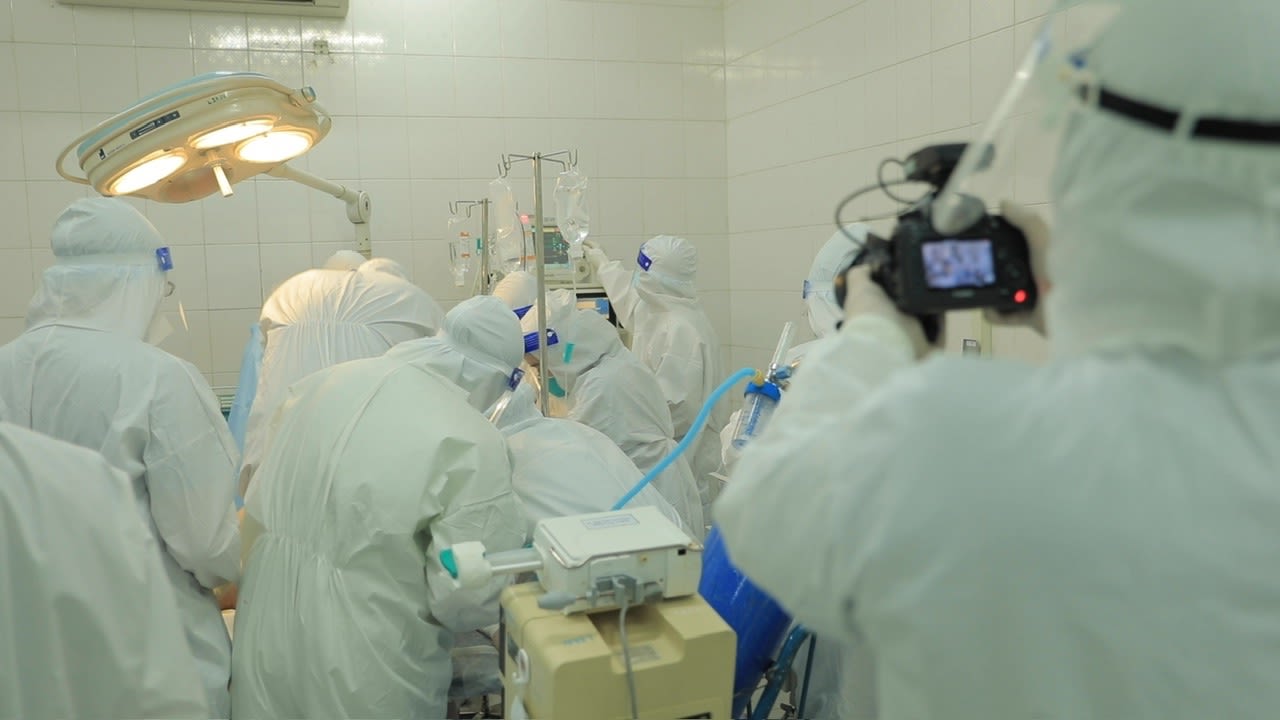
Director Ta Quynh Tu recorded for the documentary "Border".
Entering the K1 area of Hung Vuong Hospital, I set a goal to film within 10 days. Then, I went back to do post-production in the quarantine area. In fact, the film was broadcast before the quarantine period was completed. And the whole production process took less than a month.
The essence of “Borderline” is still a propaganda work, affecting people’s awareness of the fight against the epidemic, showing them real images that there are people who are still fighting for their lives with diseases every second, every minute. Instead of hesitating or choosing, they need to be proactive and quick in protecting themselves. Perhaps, the film has a profound impact on the public because it was released at such a special time.
PV: Is social reach the measure of a journalistic work's success? And what determines the survival of a documentary?
Director Ta Quynh Tu: When a film is broadcast, its reach and impact on the public is the measure to measure the influence of a journalistic work. But to judge the success or failure of a film, it must achieve the synthesis of many factors.
To build up the rhythm, the film must have facts. To increase the tempo to build up the emotions, the images must be expensive, the plot must be good. This requires careful pre-production. You cannot miss anything.
Above all, to get those elements, you have to be there. You have to be with the characters. You have to live with them. Otherwise, we will never feel what they go through and then bring it into the work.
So, if you want to get involved and get involved, there is no other way but to penetrate into reality , stick to the story to understand the character thoroughly. Only when living with the character, can you understand the root of the matter, judge whether to believe what is presented before your eyes or need to search for more truth behind.

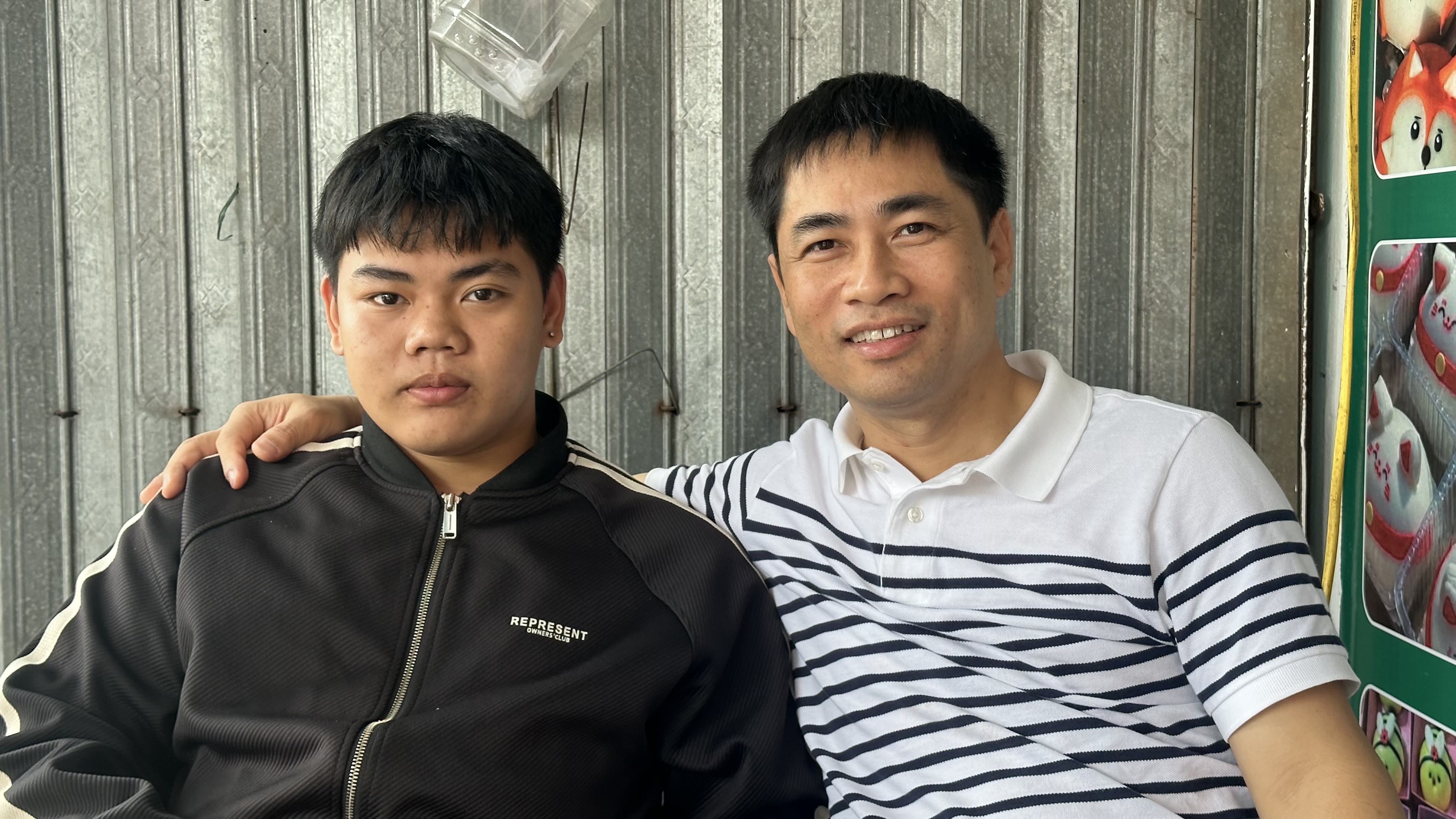
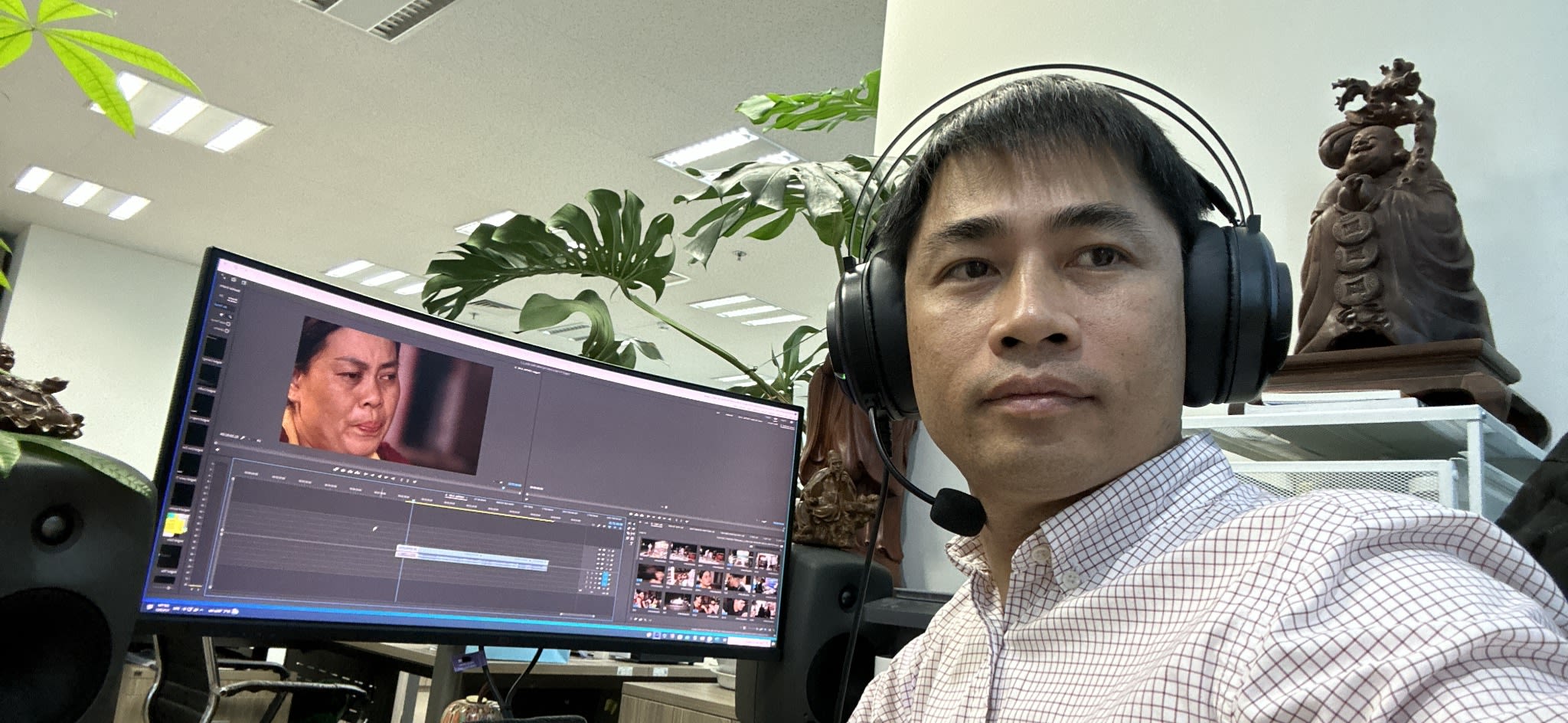
Ta Quynh Tu during the post-production process for her documentary.
PV: In truth, you have to go to the end to find the answer and discover the interesting details. So, are there any details that you decided not to include in your work, even though you knew they were valuable?
Director Ta Quynh Tu: Many. I have also abandoned many good works halfway through. When making a work, I always receive the trust of the characters. They pour their hearts out to tell me about their lives. I often consider, when broadcasting, in addition to the impact on society, whether those details affect the lives of the characters.
Everyone understands that the duty of a journalist is to fight against evil and spread the good. And each individual needs to be responsible for the position and work assigned to them. Obviously, going to the end of the pain will find the truth, but if that truth hurts the character and the people around them, I will give up.
Therefore, when working, I constantly struggle between choosing between professional ethics and personal desires. Sometimes, it is a struggle. But working in this profession, you cannot avoid that.
There were times when I finished filming and when I got home, I had to regretfully delete the recording file. I was afraid that one day I wouldn’t be able to resist. I was afraid that I would change for something else. I was afraid that one day when I thought back, I would regret all the effort I put in. So, I chose to delete it so that I wouldn’t have to think about it anymore.
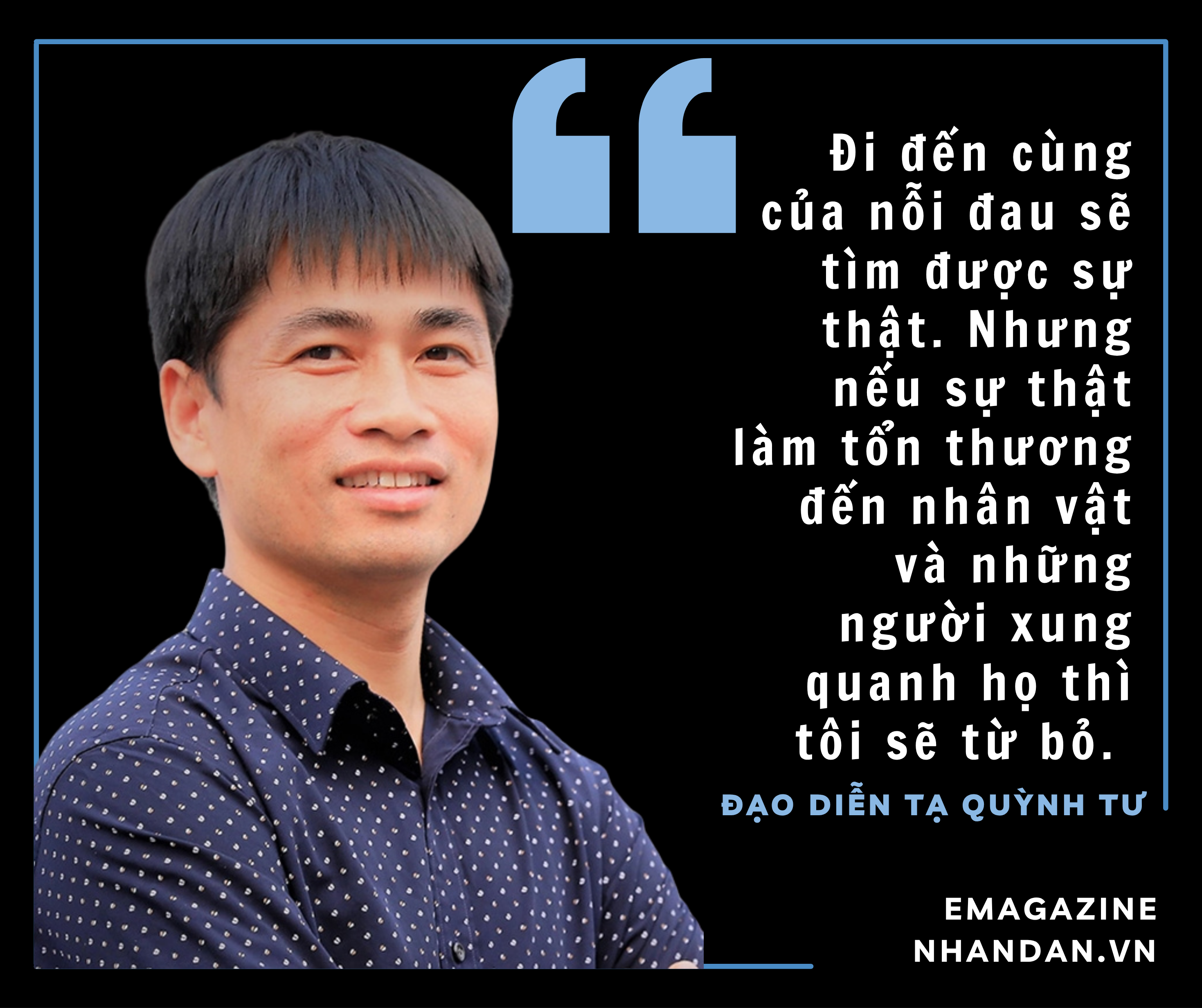
PV: Before a film is broadcast, do you often try to imagine how the public will react to the work?
Director Ta Quynh Tu: I often use the reactions of the majority to measure public opinion because it is very difficult to "serve a hundred families". For example, with "Borderline", after the film was broadcast, there were some opinions about not covering the characters' faces.
So now the question is how is the boundary of the professional measured? Has it been measured before? Or have you ever wondered about it? Are you mentally prepared to accept the consequences of your decision? The answer is yes.
But after all the hesitation and thinking, I still chose not to cover the character's face. First of all, permission was asked for for each scene. And at a time when the line between life and death was extremely fragile, their loved ones far away were also eager to see their loved ones for the last time. Some people, after the film aired, called me to ask for more pictures to save those precious footages.
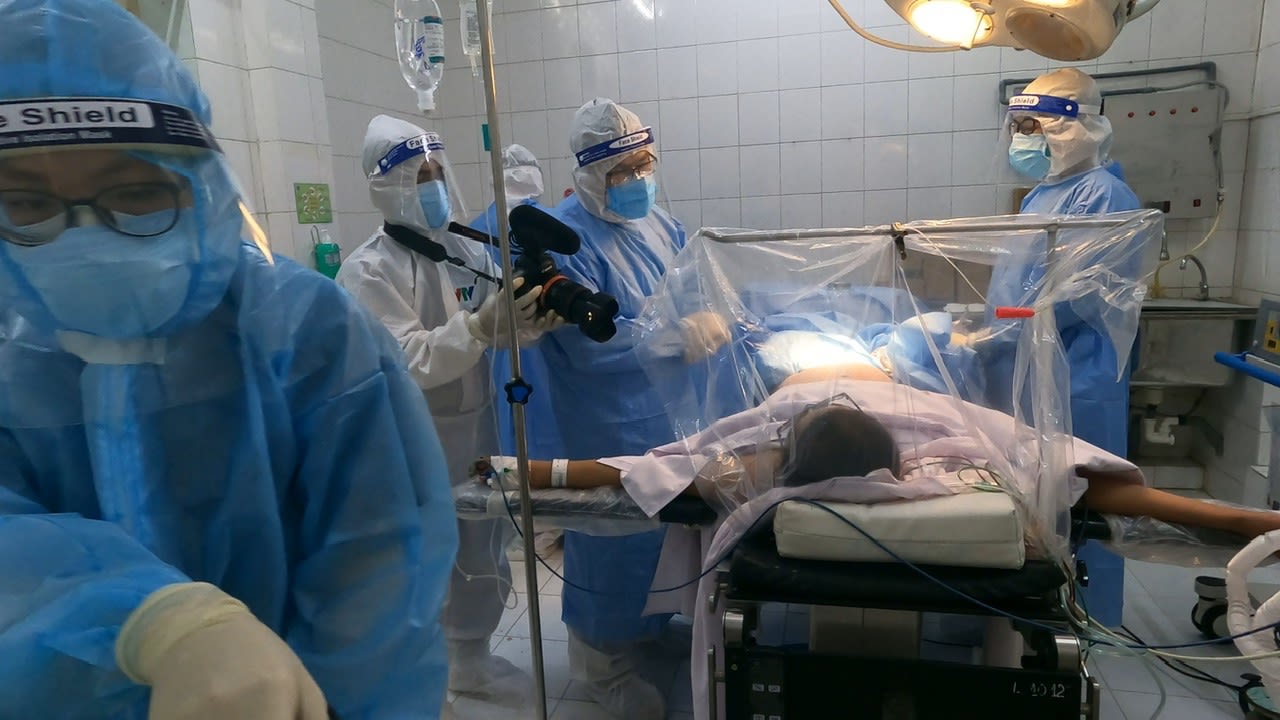
"Border" - a documentary film that raises in director Ta Quynh Tu concerns about the "boundary" of his own choices.
PV: Is there anything that leaves you with regrets during your more than 10-year career?
Director Ta Quynh Tu: Any film leaves me with some regrets. But the most worrying and regretful is probably “Two Children”. When the film was brought abroad for competition, it did not win any awards. In the film, I recreated the scene where a grandfather goes to the village to trade and accidentally sees a child who looks like his grandchild.
In fact, the story is not wrong, but the scene was recreated so realistically that viewers questioned: Why was it at this random moment? Because obviously, this is something that few documentaries can do. The competition judges commented that it was because of that reenactment that the real value of the work was lost. They thought that the production team had interfered with the story. And that was a great lesson throughout my more than 10 years of working.
At that time, I just thought, to tell an interesting story, it is necessary to describe it with pictures. But besides history - things that cannot happen again, before deciding to recreate real-life events, it is necessary to mention carefully. If I could do it again, I would borrow the character's words to remind the situation. Even though it is not as good as telling it with pictures, but at least, it does not lose the authenticity of the film.
The documentary "Two Children" tells the story of two children who were mistakenly exchanged in the delivery room. The journey of the parents to get their children back makes viewers choke up because it is not easy to separate two children from the people they have called father and mother for more than three years. And for adults, it is a million times more difficult...
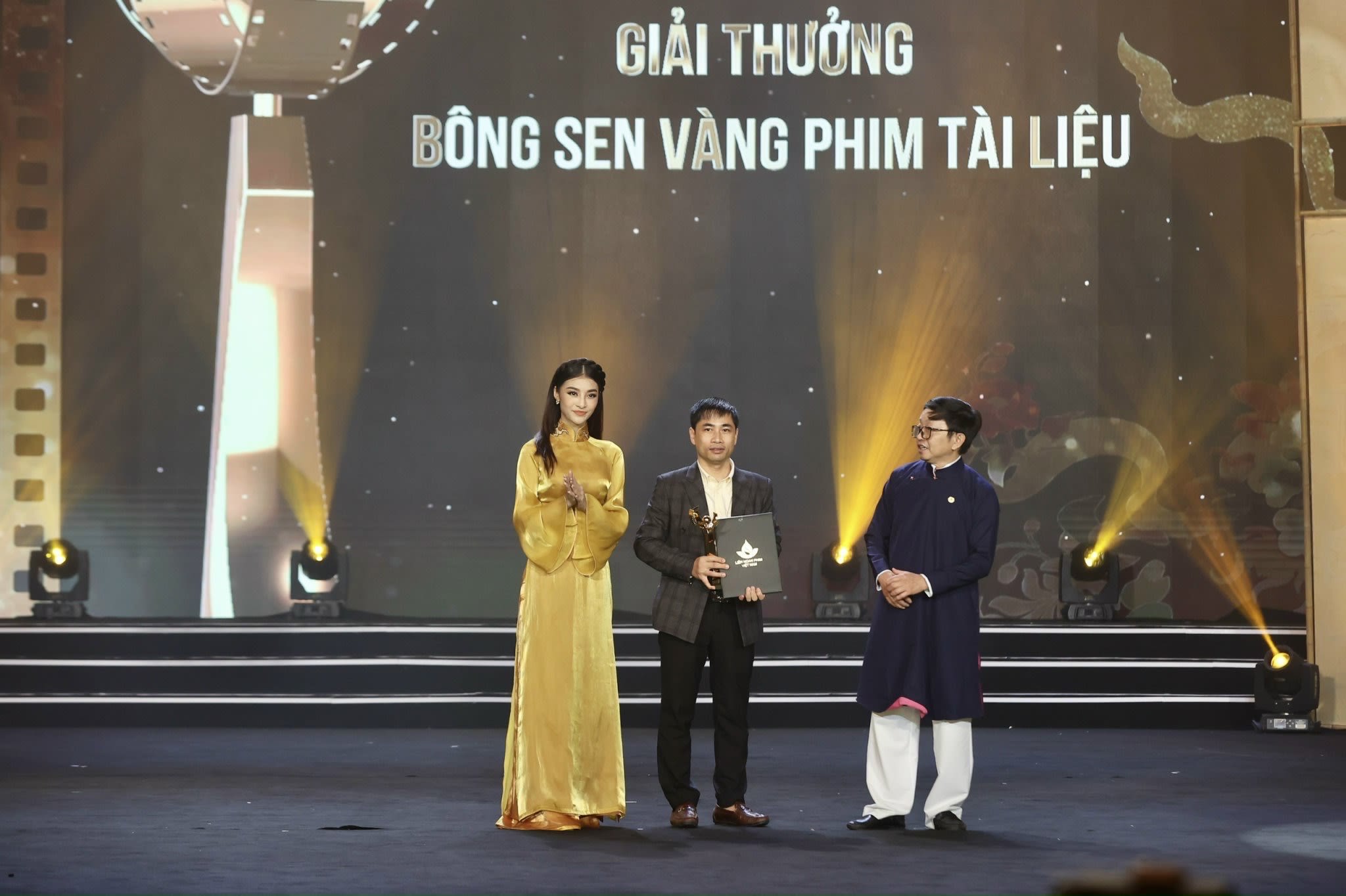
Working for a long time, we realize that sometimes, we have to accept imperfect things. Think carefully to make the right choice. Even have to overcome our own perfectionism. Sometimes, it is the messy images, the short sharing but bring more value than the sparkling image sequences.
Whenever we regret something, we often wish: if only. But without “if only”, there would be no next film. Because people are often satisfied and complacent with what they have achieved. The truth is that there are products that, 2-3 years later, I look back and see that I was naive. And many questions that were left unanswered in the past, I have now answered. For me, each “if only” is a motivation to do well in the next work.
Source: https://nhandan.vn/special/dao-dien-Ta-Quynh-Tu/index.html


![[Photo] General Secretary To Lam receives US Ambassador to Vietnam Marc Knapper](https://vphoto.vietnam.vn/thumb/1200x675/vietnam/resource/IMAGE/2025/9/29/c8fd0761aa184da7814aee57d87c49b3)

![[Photo] General Secretary To Lam attends the ceremony to celebrate the 80th anniversary of the post and telecommunications sector and the 66th anniversary of the science and technology sector.](https://vphoto.vietnam.vn/thumb/1200x675/vietnam/resource/IMAGE/2025/9/29/8e86b39b8fe44121a2b14a031f4cef46)

![[Photo] National Assembly Chairman Tran Thanh Man chairs the 8th Conference of full-time National Assembly deputies](https://vphoto.vietnam.vn/thumb/1200x675/vietnam/resource/IMAGE/2025/9/29/2c21459bc38d44ffaacd679ab9a0477c)
![[Photo] Many streets in Hanoi were flooded due to the effects of storm Bualoi](https://vphoto.vietnam.vn/thumb/1200x675/vietnam/resource/IMAGE/2025/9/29/18b658aa0fa2495c927ade4bbe0096df)






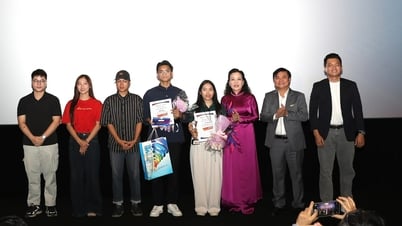
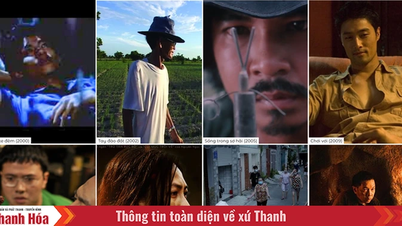





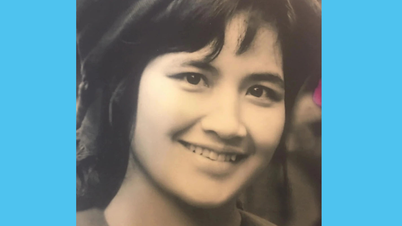



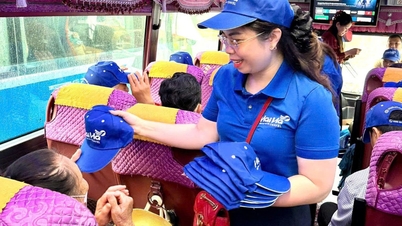







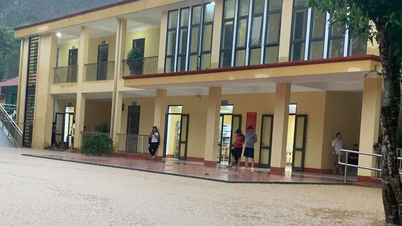

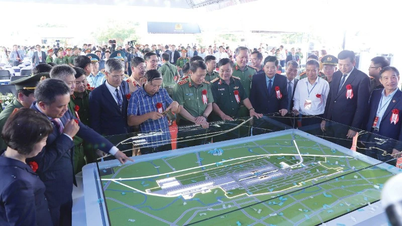
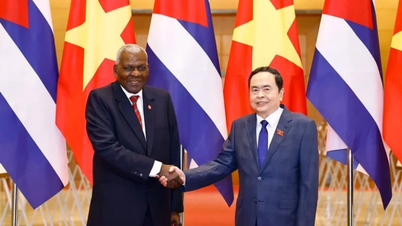






























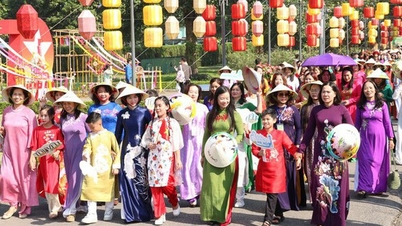

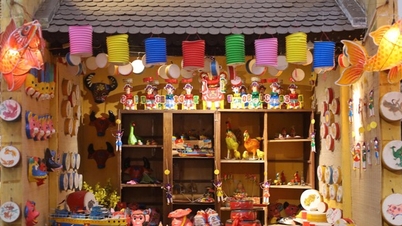










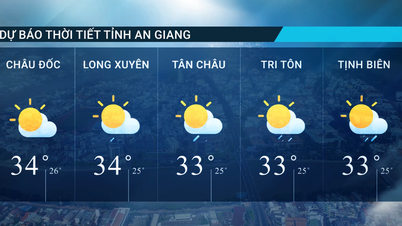


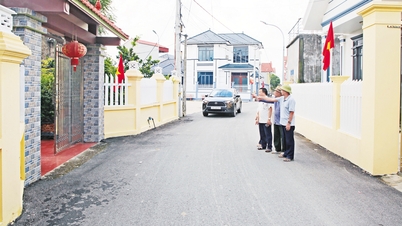













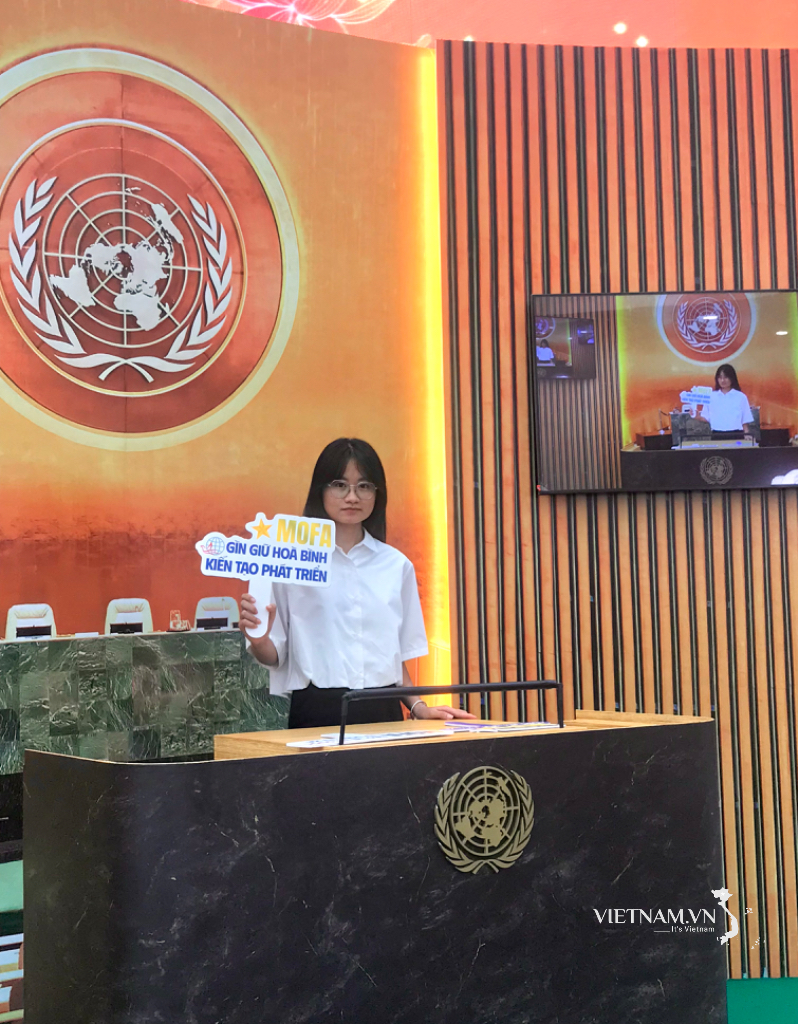
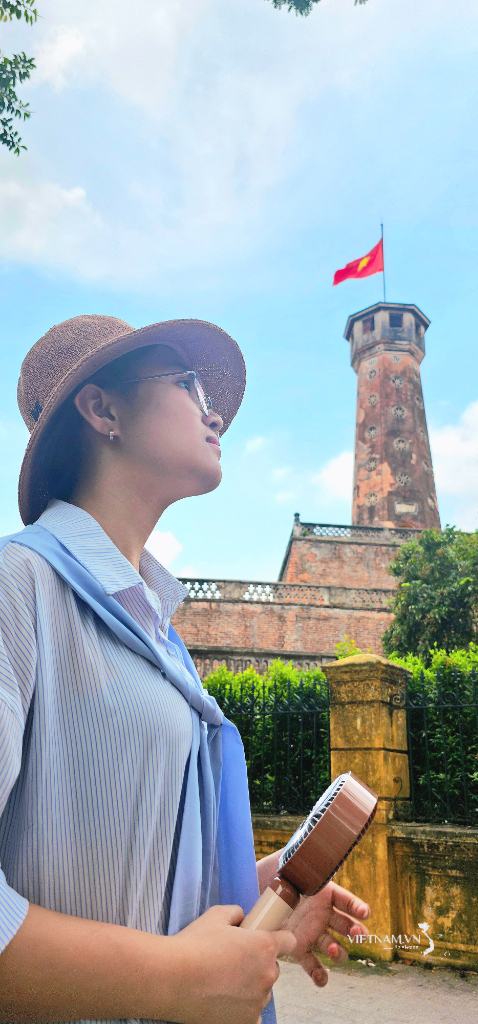

Comment (0)